If you have visited the city of Sulaimani any time over the past 14 years or so, chances are you’ve been to or at the very least heard of Nali’s Cafe. Arguably one of the calmest spots in town, with a no-smoking section, that often hosted work meetings and university students looking for a suitable place to study.
The last time I was at Nali’s was less than three weeks ago; I had gone there to meet one of my team members that is working from Sulaimani. But prior to that, Nali’s had been the place where I had spent most of my university nights, at times for studying, other times to have a heated political conversation with my classmates. That was the atmosphere Nali’s provided, until it was caught in the crossfire of the cousins’ feud on Friday.
The cafe, with a large garden, is located right in front of Lalezar Hotel, where a few dozen armed men affiliated with opposition leader Lahur Sheikh Jangi fought for hours against thousands from Patriotic Union of Kurdistan (PUK)-affiliated forces on Friday. Nali’s garden was one of the frontlines.
At first glance, it was an unbalanced fight. Jangi’s forces were besieged in Lalezar for hours in the night until the sun rose, surrounded by tanks, machine guns, and thousands of armed men, many affiliated with the PUK’s commando forces, according to reports.
It is hard to confirm which side fired the first shot, as both parties point fingers at each other, but it is clear that the fight was not one-sided. Casualty reports vary from one place to another. The PUK forces have publicly reported at least three killed and over a dozen wounded among their ranks, while reports citing sources from inside Lalezar claim at least 20 killed on Jangi's side.
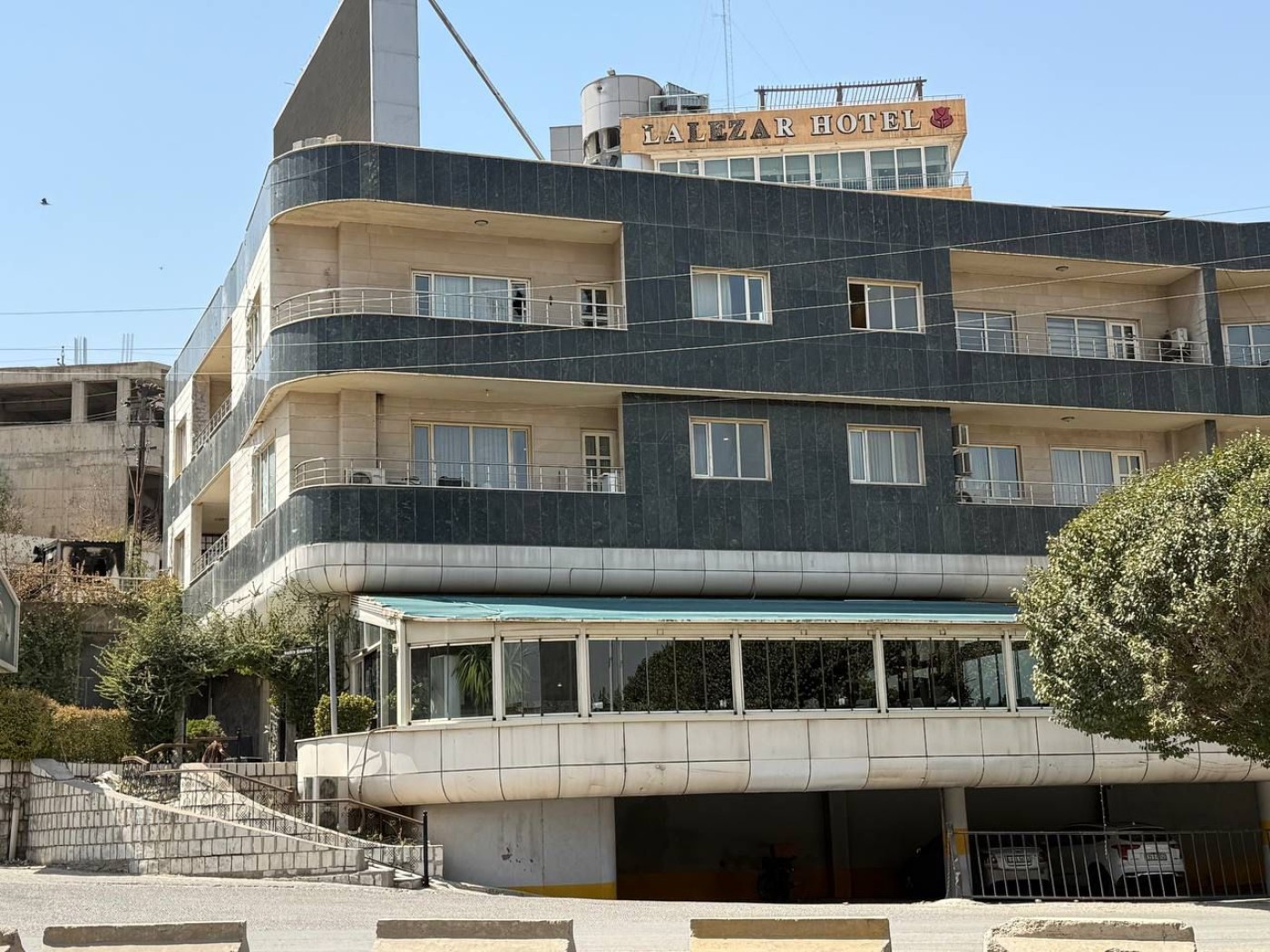
The fighting on Friday broke out reportedly after PUK leader Bafel Talabani was convinced that his cousin, Jangi, was planning a “coup”. Soon enough, a judge in the city issued an arrest warrant for Jangi, citing Article 56 of the Iraqi Penal Code which relates to devising “a criminal conspiracy.”
A process that would usually be carried out by the police, this time saw a whole army deployed to Jangi’s residence.
Jangi resisted arrest, and used the hotel he owns as a fortress. The last he appeared speaking was on top of the hotel in a video message where his face is barely visible, stating that he would “die standing”. Prior to that, he had denied having received any official arrest warrant.
But the problem between the two cousins goes way back.
Once as close as brothers, as said in old interviews by both of them, the two started falling apart while they were co-leading the PUK, the Kurdistan Region’s second most powerful party.
After the death of former Iraqi president and head of the PUK Jalal Talabani, the two cousins were elected as co-chairs of the PUK in 2020. At the time, Jangi had built more influence in Sulaimani and its surrounding areas, while Talabani, despite being the former leader’s son, was less popular.
An old photo retrieved from the ruins of Jangi’s office in Lalezar shows the two cousins at a younger age with the late Jalal Talabani.
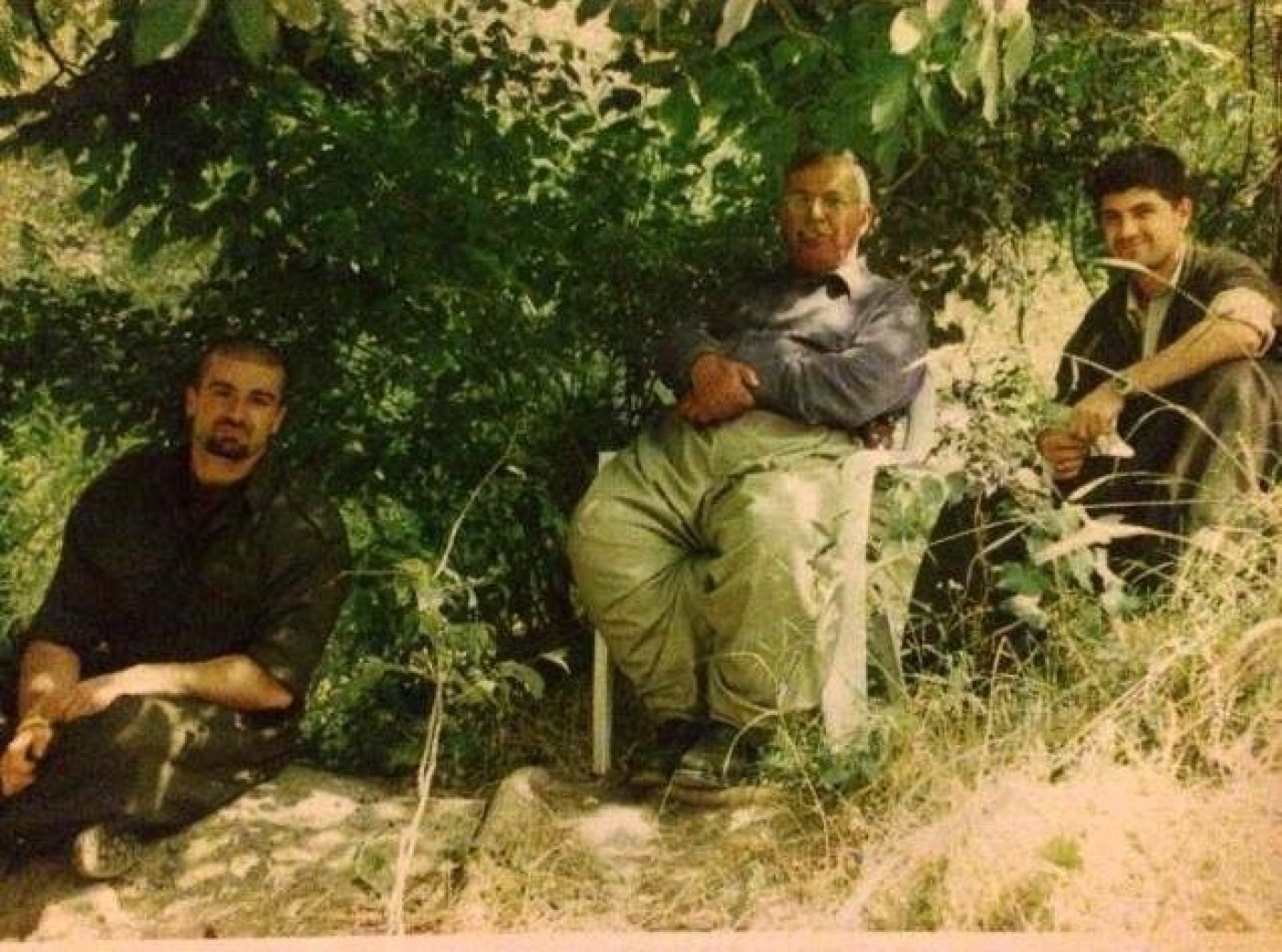
But Talabani, who has repeatedly boasted about continuing on the path paved by his father, forcibly ousted his cousin from the PUK in July 2021, nearly a year after they were chosen co-chairs of the party.
Talabani did not only oust Jangi, but all figures he deemed close to the ousted co-chair, going as far replacing the heads of the PUK’s intelligence agency and counterterrorism units with his own loyalists.
He accused people close to Jangi of attempting to poison him; an accusation that Jangi has denied.
Since then, Jangi went on to establish his own party named People’s Front, and was a vocal opposition to his cousin’s policies in Sulaimani. Though the party did not do as well as Jangi had hoped during his first election run, he continued his vocal opposition of Talabani’s policies, backed by an armed force named “Scorpion”.
Prior to the events of July 2021, the two, at one point seemingly inseparable, often posted pictures alongside their brothers and cousins including Deputy Prime Minister of the Kurdistan Region Qubad Talabani and Polad Sheikh Jangi, the former PUK counterterroris head. Come Friday night, they were on opposing sides of a battle; one of the deadliest Sulaimani had seen in years.
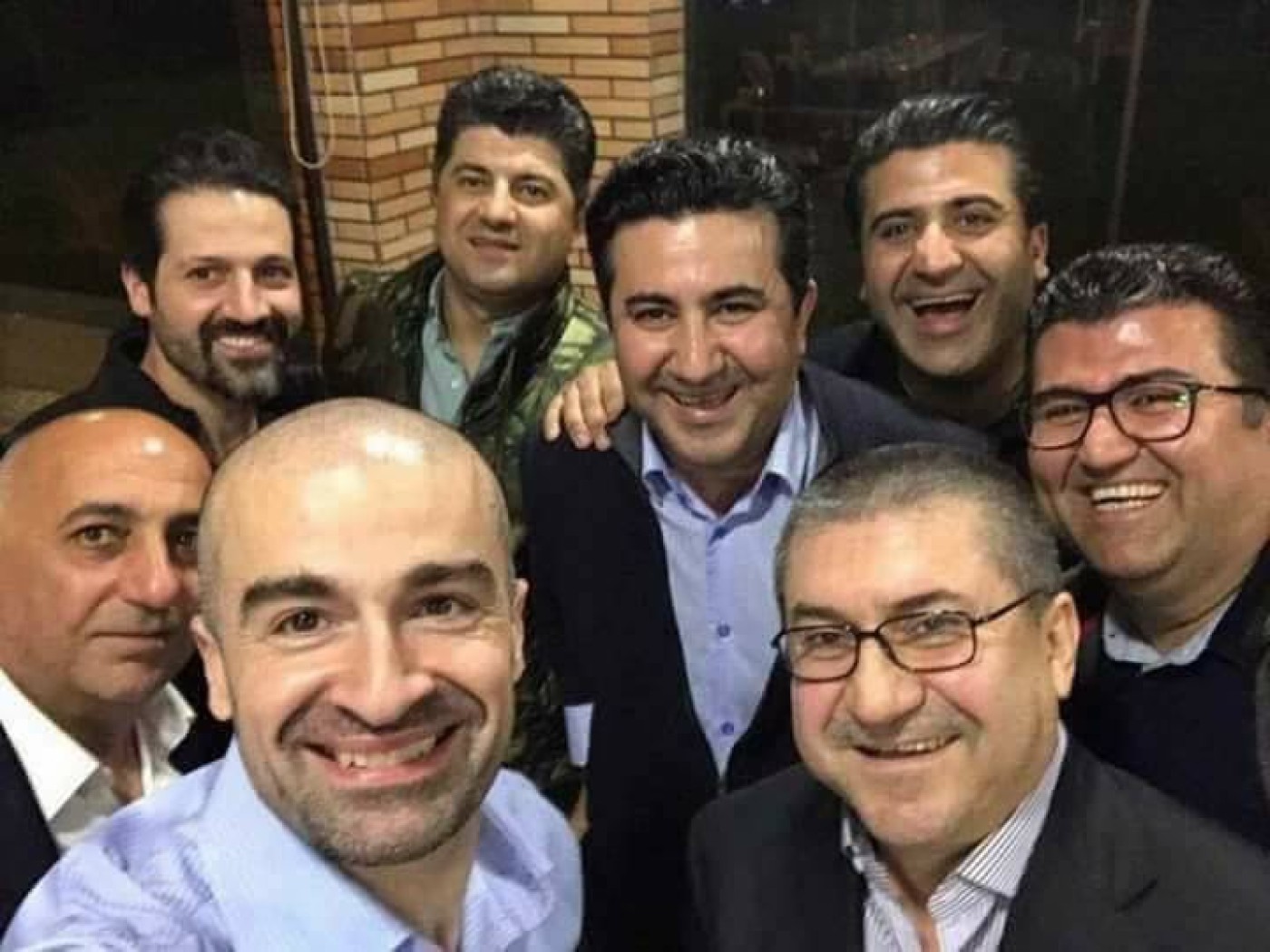
People inside the city knew something was wrong. One local I spoke to had left the city for Dukan earlier in the evening on Thursday, and had seen dozens of Humvees deployed to the checkpoint outside the city.
“I felt something was not right then,” he said.
As night fell, power to the whole neighborhood had been cut, and the forces were deployed.
Soon a video of tanks on top of large trucks was published on social media, a sight that for many in Sulaimani was the first of its kind in decades.
Footage shows heavy armored vehicles carried by trucks with the label of the PUK’s commando forces heading toward the neighborhood where opposition People’s Front leader Lahur Sheikh Jangi resides pic.twitter.com/JjvQYzGBxW
— The New Region (@thenewregion) August 21, 2025
The sound of gunfire and heavy weaponry filled the air in the early hours of Friday, and continued until dawn. Soon enough, the damage was visible for everyone to see.
The morning after
The surrounding area was in Sulaimani’s Sarchinar neighborhood was battered, with some houses suffering heavy material damage. Images of one house, located just across Lalezar, showed the property’s walls destroyed, windows shattered, and bullet holes spread across the premises.
People I have spoken to, and others interviewed on different media channels, except those directly affiliated with the PUK, shared one thing in common: Their dissatisfaction with such escalation and infighting.
But those were only the immediate reactions. Four days after the incident, dozens of videos have emerged from the morning after the fight, raising concern over human rights violations in the PUK forces’ treatment of the detained Lalezar fighters.
Dozens of gunmen from Jangi’s special forces were arrested; an otherwise understandable conclusion after hours of clashes.
But it was no normal arrest.
The first footage to emerge showed a number of the men put down on the ground, their tops removed, with one person taking a video of them saying “these are Lahur’s people,” before kicking one of them in the ribs and then cursing his sister.
“These are Lahur’s people,” a newly surfaced footage submitted to The New Region taken by a member of the massive PUK force who raided the residence of Lahur Sheikh Jangi shows him as saying.
— The New Region (@thenewregion) August 24, 2025
The captured people, affiliated to Jangi and some already undressed, are kept on the… pic.twitter.com/73quJRHZwh
Another video that surfaced on Monday, showed members of Jangi’s force, again topless, being put into the back of a truck, and one member of the PUK force coming up to his superior and saying “please let me kill one,” to which he says no.
These were just two of many that were put on the internet, showing defenseless, at times even wounded, members of Jangi’s force disrespected by the PUK forces.
On social media, comments at times showed people sympathizing with the Jangi force, saying they should not be treated like that.
“Why do that to them, it is not like they are Daesh,” one Facebook user wrote. In their defense, people in the Kurdistan Region are used to Islamic State (ISIS) and other terror group members being put on TV and recorded, unaware of the fact that the same law applies to all captured fighters.
While the PUK might not see this as a war and therefore not consider the captured as prisoners of war, the Geneva Conventions, which dictates the rights of prisoners of war and captured fighters in conflict, prohibits “torture, cruel or inhuman treatment, and outrages upon personal dignity, in particular humiliating and degrading treatment.”
Undressing detainees, beating them, and humiliating them would seemingly fall under violations of international humanitarian law. Filming them under such circumstances would constitute “outrages upon personal dignity,” and the Third Geneva Convention strictly prohibits exposing prisoners to “insults and public curiosity.”
The United Nations Assistance Mission for Iraq (UNAMI) on Monday denounced the violations against the detainees, describing the footage as “disturbing,” and calling for respecting principles of human rights.
“We reiterate our call for the respect of human rights and due process, including for those taken in custody during these events,” read the statement.
What also became clear in the videos is that many of the PUK’s forces carried American weapons, such as the M4 assault rifle. The US has for years armed the PUK’s counterterrorism forces as part of the war against terror, but here it was, those same weapons were being used to settle scores between the cousins.
I reached out for a comment from the US diplomatic mission in Iraq regarding the use of American arms in the fight, but my question was evaded, instead replying with a short statement attributed to a US Embassy in Baghdad spokesperson.
“The US Mission to Iraq is closely monitoring the situation in Sulaimani. We oppose any violence that threatens public safety and stability and urge all parties to show restraint,” the statement read, not adding much to a statement they had issued earlier on Friday.
Foreign diplomatic missions in the country have all made similar statements, limiting their comments to diplomatic generalities, including the statement from the UK mission, despite both Talabani and Jangi being British nationals.
The UK Consulate in Erbil said they were “concerned by the loss of life in Sulaimani last night.”
“The UK urges the relevant authorities to ensure that due process is followed, including applying principles of transparent and fair justice,” the statement read.
But it is not only that which is concerning the people of Sulaimani, the city where I grew up and spent most of my life. What the conflict cost the people of the city was their peace of mind.
Long known to be a city that boasted freedom of speech and civil liberty, many in the city are now afraid to express any form of opposition to those residing in Dabashan, Talabani’s residence.
Over the past decade, economic hardship and lack of job opportunities have driven hundreds of the city’s youth to seek opportunities elsewhere, some going to cities with better opportunities, and others taking the extra step of leaving the country altogether.
The conflict on Friday, has now become the final push for Sulaimani’s already mentally exhausted population.
“No one feels at ease here anymore,” a senior citizen interviewed by a local channel said the morning after the fight.
The people in the city who care about stability and their daily, oftentimes routine, life, are now not so stable.
The beautiful garden of Nali’s Cafe now lays in ruins following the fight, with bullets in its walls, and the ceiling inside torn down, as teams slowly work on renovation.
More than anything, the ruin is testament that when armed forces are directed by political individuals, places like Nali’s are often caught in the crossfire and generations will remember what was done to their favorite spots in town.
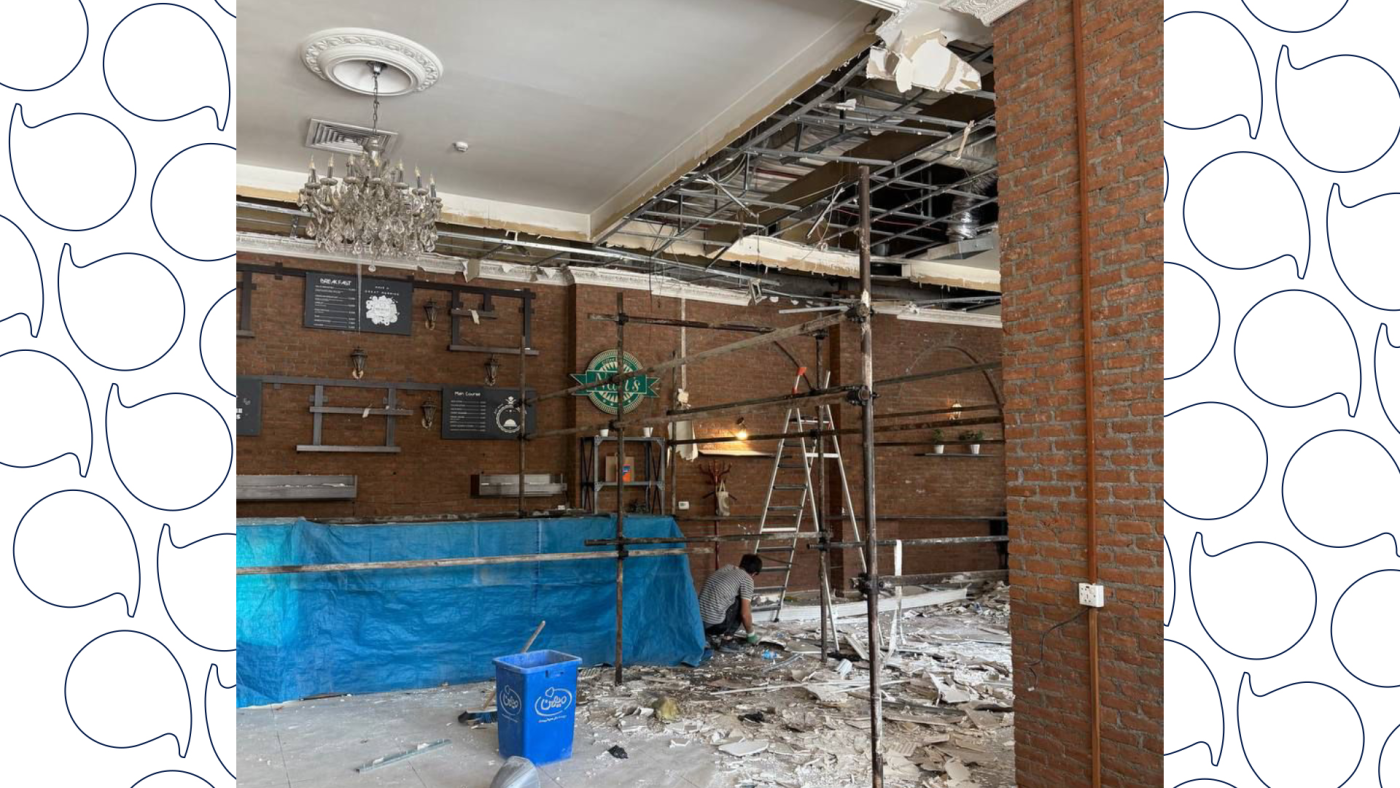

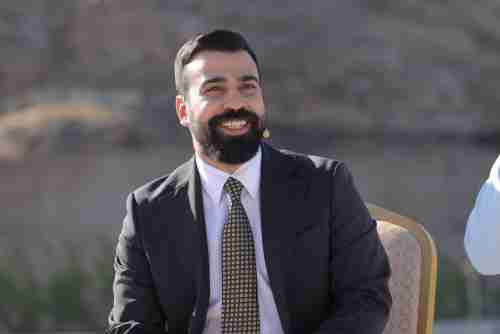
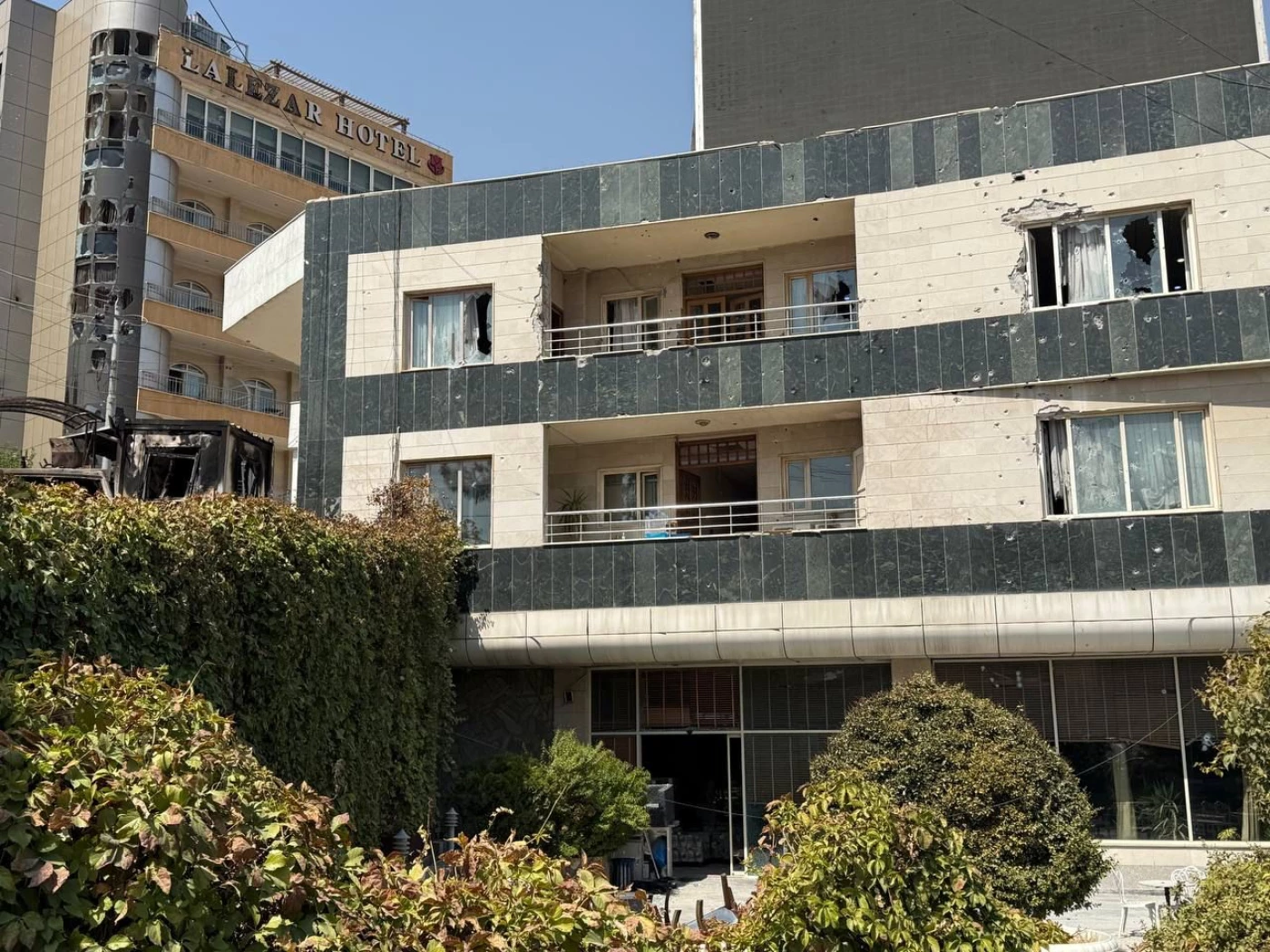
 Facebook
Facebook
 LinkedIn
LinkedIn
 Telegram
Telegram
 X
X